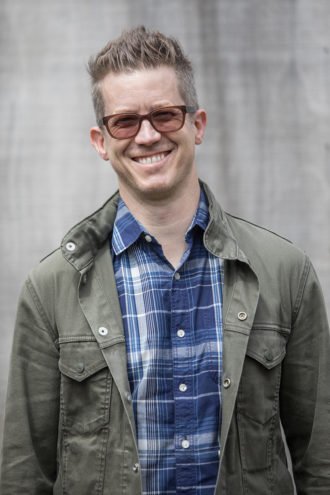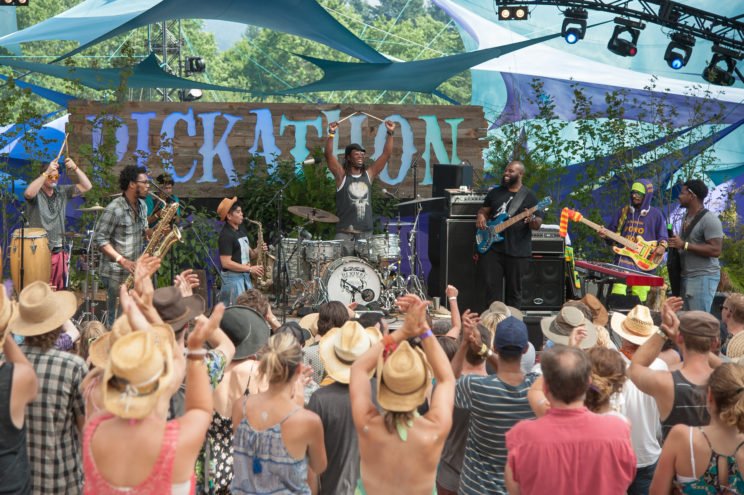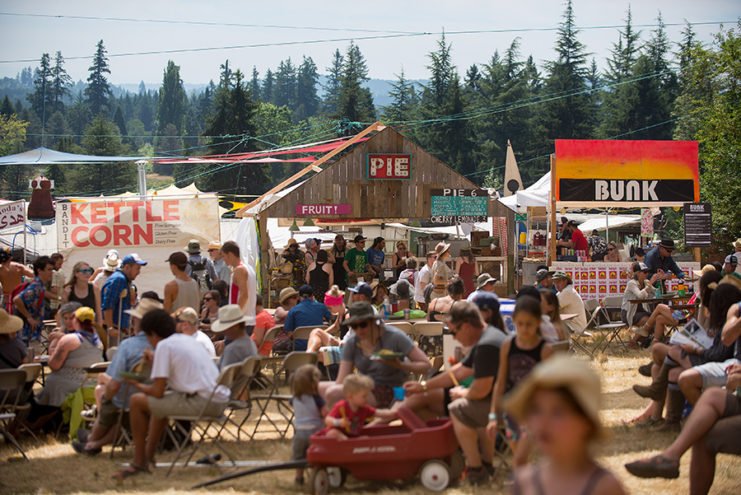Pickathon Founder and Executive Director Zale Schoenborn


ELEVEN: Where did the idea for Pickathon come from?
Zale Schoenborn: I think the original genesis was, “let’s throw a better party.” An influence on that came from when I was in Boulder, Colorado, there was a group of friends and musicians. When I was a mandolin player in a band called Soul Tractor, there was a band called String Cheese Incident, (you may have heard of,) the bass player in that band, we were all friends, kind of mixing up different bands together, and the community decided throw the Tell You What Festival, which is like a parody of Telluride.
We threw all kinds of music together, any kind of mixing of music in weird genres like bluegrass or blues or zydeco, it was like totally forbidden. “Don’t do that. Nobody’s going to go.” We were like, “screw that!” That little experience, which I was kind of just partially involved, I was like, “yeah, let’s do something like that here [in Portland]!”
11: Did you know immediately that you had something special that you’d want to do again and again?
ZS: I could say I had a master plan, but in a gradual sense, it felt good and we wanted to do it again. It was a harrowing journey. We never knew if it was actually going to happen. There’s a vibe that I was aware of super early, that was the irrational part of putting together an art or a best weekend of the year experience. There’s a real tension with making it a business. The big inflection point for us was trying to figure out how to survive that journey. Then looking out even further we’re like, “Okay, where are we headed? Are we headed towards becoming another corporate festival?” Because there’s a model there and I can tell you right now that is not the better party. It has a bit of a soloist center that doesn’t really attract the olympic performance from people that you’re trying to get fired up. It turns into more like– you’re hiring people and they’ll do it.

11: How do you stay authentic here in year 20?
ZS: You just double down on [authenticity]. You go, “unless Pickathon is this insane blowout of an experience, we aren’t going to make the most amazing content,” and it feeds back on itself because what looks great visually in terms of treating everything a musical fantasy ride– it looks great on film and film is even more unforgiving, it really creates flaw. You can see every single flaw, from lighting, audiences too far away, just every little detail makes you get taken out of watching live music.
11: Why has video media become such a central focus of the project?
ZS: It is the way that Pickathon becomes sustainable. It’s just flat out. As a festival, Pickathon makes no sense. It’s completely, ridiculously illogical in every way you look at it which is why it’s so awesome. You can dig very deep into Pickathon on almost any dimension and the story is still good. There’s not an evil person behind the curtain like the Wizard of Oz. That’s a Portland culture thing, too.

11: The booking is unbelievably on the pulse. Maybe even pre-pulse. Where did you get your crystal ball and can you let us behind the curtain a bit on that decision-making process?
ZS: Absolutely. Open source booking is the answer. Nobody is that smart. You literally have to tap and be open to as many smart people as you can humanly handle, aggregating their ideas in some form, “give us your 10 favorite things. Forget draw. I don’t want to know about draw.” There is stuff regionally everywhere that is just super obvious to them. You have to have faith. That actually is part of the rationality at Pickathon again is like, the best music should win. Screw genre. Screw any kind of rules. It should just be the best music. I don’t care what it is. It could be somebody banging on a hubcap if it’s the coolest thing you’ve ever seen. You can’t fake people being excited about something, right? It’s your approach more than your business.
11: The year is 2028 and here comes Pickathon 30, what does the festival look like now?
ZS: We’ve succeeded in our content. We are known nationally for this amazingly influential weird music that people never had thought was awesome but they are experiencing it through Pickathon. On a large scale, millions of people are watching it and Pickathon still is the same size. It doesn’t change. It is like this thing that is a real thing that generates all these other amazing things. That’s what I hope we are. That energy is why we can all come here and hang out and make it real every year.
[Limited quantities of tickets for Pickathon are available here.]


